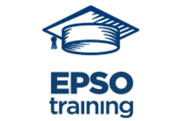| Date | on demand |
| Duration | 3 days |
| Location | Your location or Trainday location in Brussels on demand |
| Participants | 6 |
| Course fee | 990 EUR/participant |
Module 1: Overview
A simple introduction module.
After completing this module, students will be able to:
- Understand your course, classroom, classmates, facility and instructor.
Module 2: Server Site Definitions
In this module we will explore each of the site definitions that come with SharePoint Server.
Lessons
- SharePoint Server Site Definitions
- Business Intelligence Center
- Publishing
- SharePoint eDiscovery
- SharePoint Education
Practice: Server Site Definitions•Use the Publishing Portal
- Edit publishing pages
- Work with Reusable Content
- Review Page History
- Create new Pages
- Use the Records Center
- Setup Send To Connections
- Create Content Organizer Rules
- Submit Records
- Use the Search Center
- Use Business Intelligence Center
Practice: Managed Navigation
- Managed Navigation
Practice: Cross Site Publishing
- Cross Site Publishing
Practice: Image Renditions
- Image Renditions
Practice: Embedded Code
- Embedded Code
Practice: SharePoint eDiscovery
- Create Discovery Center
- Create a Case
- Create Discovery Sets
- Create Queries
- Explore eDiscovery Exchange Integration
Practice: SharePoint Education
- Explore the SharePoint Education Course Site
- Create and Assign Assignments
- Create Quizzes
Practice: Content Type Hub
- Configure Content Type Hub
- Configure Content Type Publishing
After completing this module, students will be able to:
- Describe each of the SharePoint Server site definitions
- Be able to effectively use the SharePoint Server site definitions
- Utilize the Publishing site for intranet and internet sites (Create pages, content types, page layouts)
- Use the new cross site publishing (list catalogs), image renditions and code snippet features
- Use the Records Center to submit content
- How to implement in place records management
- How to setup and use the eDiscovery Center
- How to setup and use the SharePoint Education site
Module 3: Search
In this module you will learn how to navigate the basic Search Center provided by SharePoint 2013. You will then explore various ways to customize the Search Center using Search Pages, Web Parts and Result Types.
Lessons
- Search Center Introduction
- Customizing Search Center
Practice: Search Administration
- Search Result Sources
- Search Result Types
- Search Query Rules
- Search Schema
- Search Configuration Export and Import
- Search and Offline Availability
- Searchable columns
Practice: Creating Refiners
- Creating Refiners (Custom)
- Creating Refiners (Managed Metadata)
- Configure item counts
Practice: Content Query Web Part
- Using Content Query Web Part
- Implementing Top Likes
- Implementing Most Viewed
After completing this module, students will be able to:
- Describe the Search Center features
- How to enhance the Search experience with Site Collection and Site Search Schemas
- Add new search and results pages
- Customize the Search Center using Search Web Parts
- Create and use Result Types
- Create Refiners
- Using the Content Search Web Part
Module 4: WorkflowsIn this module we will review the new workflow features of SharePoint 2013
Lessons
- Workflows in SharePoint 2013
Practice: Built In Activities (2007)
- Use one of each BuiltIn Activity
Practice: Built In Activities (2010)
- Use one of each BuiltIn Activity (2010)
Practice: Reusable Workflows
- Create Reusable Workflows (Site/Global)
- Export a workflow to Visio
- Import a workflow from Visio
- Save as Template
Practice: Modify OOB Workflow
- Modify Out Of Box Workflows
Practice: Looping Workflow
- Create a looping set of workflows
Practice: Creating Simple 2013 Workflows
- Create a custom workflow using SharePoint Designer 2013
- Work with Stages
- Work with Loops
- Utilize new SharePoint activities
Practice: Creating Visiobased Workflows
- Create a workflow using Visio 2013
Practice: Out Of Box Workflows
- Create/Use Approval WF
- Create/Use Collect Feedback WF
- Create/Use Collect Signatures WF
- Create/Use Disposition WF
- Create/Use Threestate WF
After completing this module, students will be able to:
- Build workflows with SharePoint Designer
- How to utilize the new Windows Workflow 4.0 in SharePoint 2013
- Understand how to edit built in workflows
- Implement logging in your workflows
- Understand the difference between 2010 and 2013 workflows
- Learn to use the new Stages to implement state machine workflows
Module 5: Site Administration
In this module we are going to take a quick look at some basic site administration tasks.
These are tasks that can be done by site "owners".
Lessons
- Basic Site Administration
Practice: Site Administration
- Site Name, Description, Appearance
- Tree View
- Composed Looks and Site Theme
- Navigation
- Regional Settings
- User Alerts
- RSS Settings
- Workflow Settings
- Term store management
- Content and Structure
- Manage Site Features
- Reset to site definition
- Popularity Trends
Practice: Galleries
- Explore Site Column Gallery
- Explore Site Content Types Gallery
- Explore Web Parts Gallery
- Explore List templates Gallery
- Explore Master Pages (and page layouts) Gallery
- Explore Solutions Gallery
Practice: Advanced Site Administration
- Site Features
- Hold Reports
- Discover and hold content
- Content Organizer settings
- Content Organizer Rules
After completing this module, students will be able to:
- Understand what a Site Administrator is
- Be able to describe all Site Administration tasks
- Administer SharePoint Sites
Module 6: Site Customization
In this module we will take a very brief look at some of the ways to customize your site via the browser and as an end user. There are many more ways at a developer level to customize SharePoint sites, but this module is focused at an end user level.
Lessons
- Using Web Parts
- Site Customization
Practice: Foundation Web Parts
- Web Parts Basics
- Add a web part
- Close a web part
- Delete a web part
- Media and Content Web Parts
- Content Rollup Web Parts
- Social Collaboration Web Parts
Practice: New 2013 Web Parts
- Timeline
- SearchDriven Content Web Parts
Practice: Server Web Parts
- Basic & Audience Targeting
- Business Data
- Office Client Applications
Practice : Filter Web Parts
- Use each of the Filter Web Parts
Practice: Master Page and CSS Customization
- Create a Master Page
- Modify a Master Page
- Custom CSS
Practice: Page Layouts
- Create a new Page Layout
- Create a new Page using a Page Layout
After completing this module, students will be able to:
- Modify the shared and personal view of a site
- Add and delete pages and web part pages
- Add, remove, close and move web parts to a web part page
- An understanding of some basic web part on a team site and portal sites
- Be able to make simple changes to SharePoint master pages and CSS
- Be able to create page layouts and pages
Module 7: Site Collection Administration
In this module we take a look at all site collection settings and describe what a site collection administrator is, and what they can do.
Lessons
- Site Collection Administration
Practice: Site Collection Administration
- Recycle Bin
- Site Collection Features
- Site Hierarchy
- Site Collection Navigation
- Search engine optimization settings
- Site Collection Audit Settings
- Audit Log Reports
- Portal site connection
- Content Type Policy Templates
- Storage Metrics
- Site collection app permissions
- Site Policies
- Site collection cache profiles, object cache & output cache
- Suggested Content Browser Locations
- Document ID Settings
- Help Settings
- HTML Field Security
- SharePoint Designer Settings
- Popularity and Search Reports
- Site Collection Health Checks
Practice: Creating Variations
- Variation Settings
- Variation Labels
- Variation Logs
- Translatable Columns
- Using XLIFF Packages
- Utilizing Machine Translation
Practice: List Throttling
- Throttle Large Lists
After completing this module, students will be able to:
- Understand what a Site Collection Administrator is
- Understand where to find and configure site collection settings
- Be able to describe what each of the site collection administration features are
- Be qualified to be a Site Collection Administrator
Practical Info
- To reserve a place please send us an e-mail at office@trainday.eu or press the "Buy Now" button below to register right now via PayPal.
- Contact us to schedule a private coaching session if the proposed date is not suitable for you.











